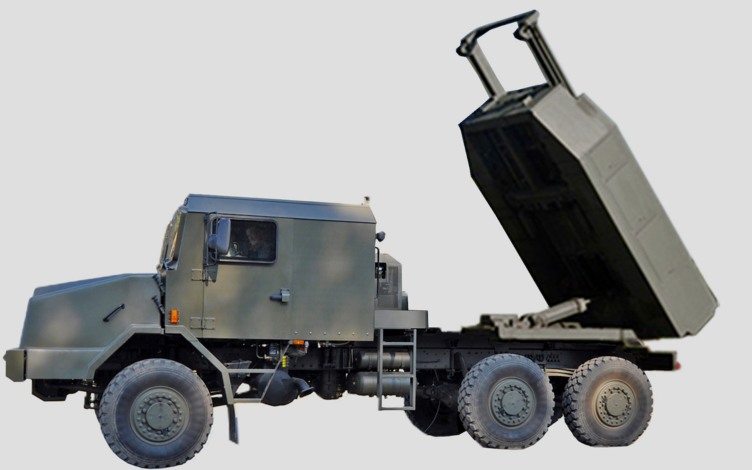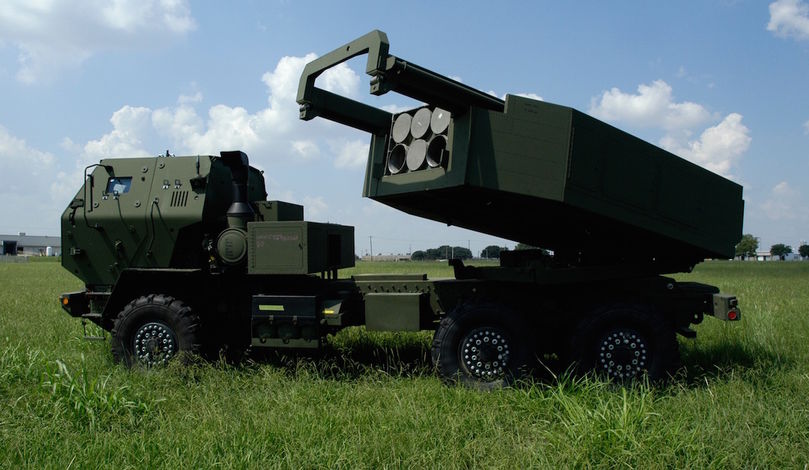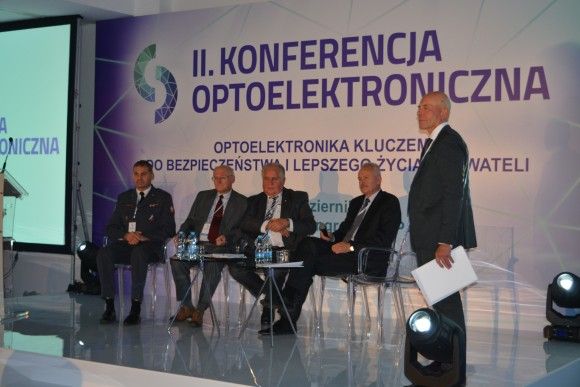Industry
Poland Goes for the HIMARS System
Head of the Polish Ministry of Defence, Antoni Macierewicz, announced it yesterday, during an interview for TVP Info, that procurement contract concerning the Homar rocket artillery programme, would be, most probably, concluded with the Lockheed Martin company. The above means that the rocket artillery system, which is being constructed by a consortium led by PGZ, would be based on the HIMARS launcher solutions.
Antoni Macierewicz, head of the Polish MoD, has released information, via the management of the Polish Armaments Group, concerning the progress of the Homar rocket artillery programme. Doing so, Macierewicz noted that the contract is going to be, most probably, concluded by and between Poland and the US Lockheed Martin company. The information provided by the head of the Polish Ministry of Defence was also confirmed within the announcement made by the PGZ Group.
We are closing the negotiation concerning the area which is widely referred to as the anti-missile shield, however yesterday, the Polish Armaments Group has made a decision that [...] the Homar rocket weaponry would be acquired, would be negotiated and that the contract would be most probably concluded with the Lockheed Martin company (...).
In practical terms the above means that the Polish rocket artillery system would be based on the solutions implemented in case of the HIMARS artillery rocket system. Homar is a programme, the aim of which is to have the Polish industry create, in collaboration with a foreign partner, a ground-to-ground rocket system which would utilize several types of rockets, also enabling the user to strike targets at distances of around 300 kilometers.
This is the latest weapon, this is a weapon which allows the user to fire the rockets at distances beyond 300 kilometres. It will make it possible to create an actual suppressing fire, so that no enemy can enter the Polish territory.
The consortium led by PGZ has recommended that the offer submitted by Lockheed Martin shall be a subject to further negotiation and scrutiny, taking place within the framework of the Homar programme. Polish Armaments Group stressed the fact that this paves the way towards submission of an offer by the PGZ-led consortium to the Armament Inspectorate of the Polish Ministry of Defence, and towards initiation of a procedure at the intergovernmental level, within the scope of obtaining the US authorization which would allow the Lockheed Martin company to be involved in implementation of the “Homar” [Lobster] programme.
HIMARS system has been armed with the GMLRS Missiles, the range of which is defined as 80 kilometres, and ATACMS missiles, capable of striking targets at distances of up to 300 kilometres. Similar effectors are also applied in case of the tracked-chassis MLRS system. The US Army also plans to pursue further development of the MLRS rocket systems. According to the FY2018 budgetary bill, both the M270 MLRS tracked platform, as well as the wheeled M142 HIMARS systems, acting as a starting point for the Polish Homar solution, are to remain active in the US inventory at least until the year 2050. That means that they will be a subject to development works.

GMLRS Missiles are expected to be modernized soon, through a range extension. During the upcoming decade, the rocket artillery units are going to receive a new missile, currently developed at the initial stage of the Long Range Precision Fires (LRPF) programme. The initial assumption is that a single launch container should be able to house two LRPFs (currently the launcher is capable of carrying a single ATACMS or six GMLRS missiles).
Moreover, HIMARS/MLRS system is also soon to be integrated with the IBCS air defence management suite, so that it remains capable of acting against the enemy rocket artillery systems and missile launchers, on the basis of the airspace situation data downloaded from IBCS. The Americans are also inclined to expand the quantitative dimension concerning the rocket artillery units, using the MLRS family platforms. Some of the newly formed rocket artillery battalions are to be deployed to Europe. Deployment of the equipment itself - MLRS/HIMARS launchers, coming from the resources existing within the Army Prepositioned Stock (a system of strategic storage spaces for potential allied reinforcements) has already begun.
Three offers were being taken into account within the Homar tendering procedure. Alongside the US proposal, an Israeli one (IMI Systems Lynx launcher with a family of rockets), and a Turkish offer involving the Roketsan company, were placed. According to the Polska Grupa Zbrojeniowa S.A. [Polish Armaments Group - PGZ] company, PGZ, within the scope of negotiation, has considered the Lockheed Martin’s offer to be the most beneficial one, when it comes to the requirements defined by the Polish Armed Forces and to the technology transfer. On 4th July 2017 the Group formally indicated the American entity to act as the partner within the framework of pursuing the Squadron Fire Module of “Homar” [Lobster] multiple rocket launchers, within the scope of the effector and the rockets.

The aforesaid decision made it possible to proceed and make steps towards further progress in the negotiation with the Lockheed Martin company, and towards drafting of a final proposal which the consortium would submit to the Armament Inspectorate, in order to negotiate and arrange all of the agreement provisions. Polish Ministry of Defence has been made aware of this decision. The MoD, on the basis of the above, will be able to initiate an intergovernmental procedure, the goal of which would be to obtain proper acceptance on the part of the United States, allowing the company to participate in the programme.
The consortium which would be working on the Homar programme is to be led by PGZ, with Huta Stalowa Wola S.A. playing a significant role in the process of manufacturing the launchers themselves. Moreover, other companies of the Polish defence sector are involved in the programme as well, including Mesko, WZU in Grudziądz [Military Armament Works] and WB Electronics. Homar’s fire control suite is to make use of the WB Electronics Topaz solution, already implemented in case of other artillery assets utilized by the Polish Armed Forces.
The vehicles are to be based on Jelcz heavy duty utility trucks. The initial assumption was that 56 launchers were to be acquired in total for three squadrons (along with two systems to be procured for training purposes). However, it cannot be ruled out that in a longer run the quantity of the Homar systems would go up, as the programme, according to the Strategic Defence Review, remains one of the priorities for the Polish MoD.
Selection of a foreign partner is one of the most important steps taken on the way towards completion of the Homar programme, conditioned by conclusion of the delivery agreement. Potential conclusion of the contract by the end of this year would be a major success for the Polish MoD, as one of the promises made earlier this year by Antoni Macierewicz, who is the head of the MoD, would become reality.



